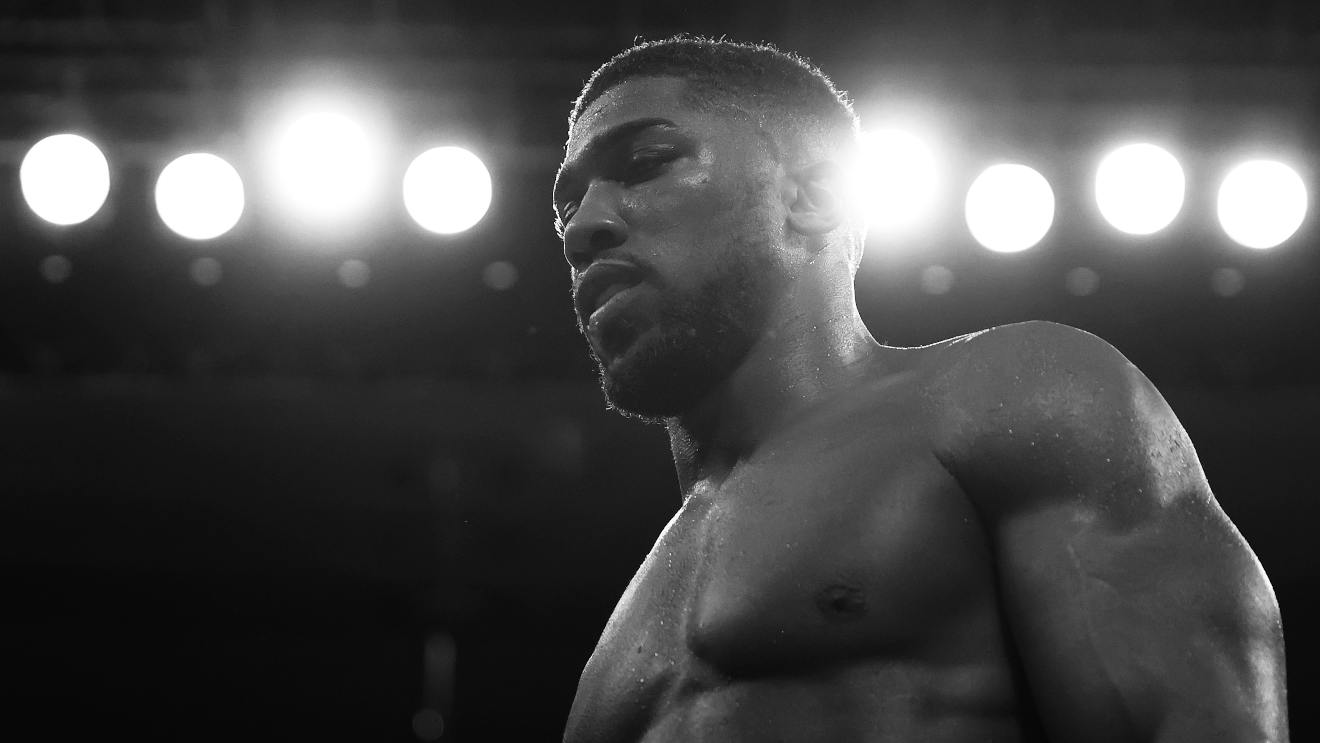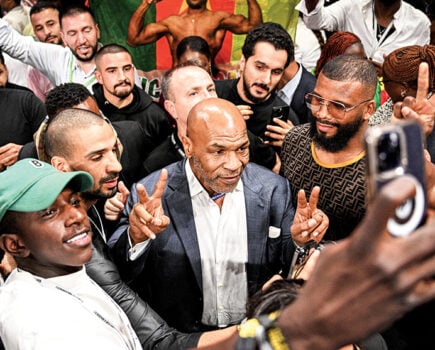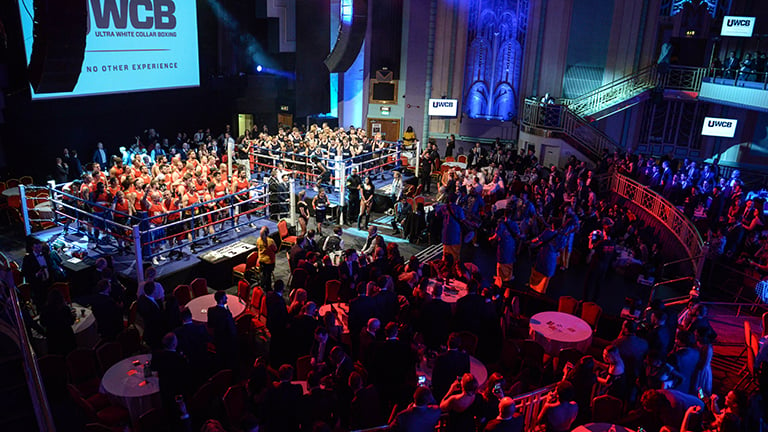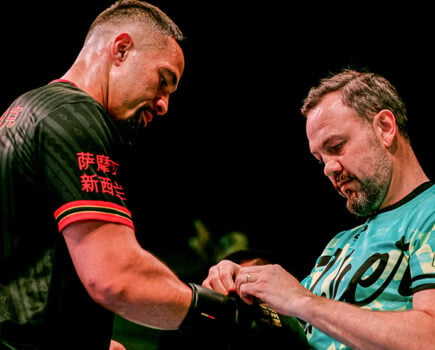ANTHONY JOSHUA joined a very small club of heavyweight belt-holders and champions to reverse a defeat in an immediate rematch when he outscored Andy Ruiz Jnr over 12 rounds in December 2019. Ruiz had stopped Joshua in seven rounds only six months before.
It’s a club that was founded by Floyd Patterson in 1960 when he avenged Ingemar Johansson. Muhammad Ali became the second member in 1978 after reversing a 15-round points loss to Leon Spinks, before Lennox Lewis made it a three-man band when he walloped old conqueror Hasim Rahman in 2001.
Should Anthony Joshua defeat Oleksandr Usyk this weekend, he will become the first fighter in heavyweight history to do it twice. Patterson – the only other member of the club to get a second immediate return after losing the title – failed when he suffered two consecutive first round losses to Sonny Liston.
Patterson’s loss to Liston is more in keeping with history than his win over Johansson.
All of the following belt-holders/champions also failed to win immediate returns: Jersey Joe Walcott (vs Rocky Marciano); Ingemar Johansson (vs Floyd Patterson); Sonny Liston (vs Muhammad Ali); Mike Weaver (vs Michael Dokes); Larry Holmes (vs Michael Spinks); Mike Tyson (vs Evander Holyfield); Evander Holyfield (vs John Ruiz in their rubber match); and Deontay Wilder (vs Tyson Fury, who won two in succession via KO after their first bout ended in a draw); whereas other notable former titlists like Bob Fitzsimmons (vs James J Jeffries), Jack Dempsey (vs Gene Tunney), Ezzard Charles (vs Jersey Joe Walcott); John Ruiz (vs Nikolai Valuev); and Bermane Stiverne (vs Deontay Wilder) couldn’t reverse old defeats after taking bouts in the interim.

Other world heavyweight title rematches to go the same way as fight one include: James J Jeffries stopping James J Corbett for a second time in 1903; Joe Louis beat several challengers twice (Arturo Godoy, Buddy Baer, Billy Conn and Jersey Joe Walcott), and each more emphatically than the first time; Rocky Marciano successively defeated Ezzard Charles while champion; Six years after hammering him in five rounds Mike Tyson took just three to beat Frank Bruno in 1995; both Chris Byrd and Tony Thompson found Wladimir Klitschko to be even harder to beat the second time.
Unquestionably, heavyweight history dictates that it’s more likely that the winner of fight one will be replicated in fight two. And the theme continues if you dig a little deeper. Jack Dempsey found Billy Miske a much easier proposition when he was champion (after beating him twice when a contender). While on the way to the championship, Rocky Marciano edged Roland LaStarza over 10 in 1950, then, when champion three years later, halted him in 11 rounds. Similarly, Tommy Jackson lost a split decision to Floyd Patterson in 1956 in an eliminator only to be dominated and stopped 13 months later in a title fight. This is of course by no means an exhaustive study but it’s not that difficult to find further cases to prove the point. Muhammad Ali beat Floyd Patterson in a world heavyweight title fight in 1965 and repeated the feat in 1972 when “The Greatest” was rebuilding. Likewise, George Chuvalo was beaten by Ali the champion over 15 rounds in 1966 and Ali the contender in 1972. Jerry Quarry, who lost twice to Ali in non-title fights, found Joe Frazier just as fearsome in 1974 as he had in 1969 when he challenged the Philly legend for the title. Larry Holmes beat Earnie Shavers twice, once while on the rise and again when at the top. Closer to the present day, Hasim Rahman was stopped by Oleg Maskaev in 1999 and again, when WBC belt-holder, seven years later.
But there are further examples to consider if one is making the case for ‘revenge’.
Fighters like Jack Sharkey (vs Primo Carnera) and Joe Louis (vs Max Schmeling) beat their old masters in championship fights after losing the first encounter in non-title bouts. Two years after losing to Max Schmeling via disqualification in a contest for the world title vacated by Gene Tunney, the same Jack Sharkey levelled the series when he won the championship on points, albeit contentiously, after 15 rounds. Muhammad Ali lost ‘The Fight of the Century’ to Joe Frazier in 1971 but won their non-title rematch three years later (after gaining revenge over Ken Norton in the interim), and then triumphed in the legendary rubber match in 1975.

It doesn’t end there. Evander Holyfield’s brilliant and shocking win over Riddick Bowe in 1993, which came just 12 months after “Big Daddy” had proved so superior to the “Real Deal” (though Holyfield had one fight in-between and Bowe had two), can be compared to Joshua’s mission against Usyk in terms of low expectancy for the upset. Holyfield went on to crush Michael Moorer in eight rounds, three years after losing his titles to him on points. Evander was good at learning lessons from the first fight back then and, even when starting to fade, he proved better in a rematch against Lennox Lewis (though he failed to win either fight). Lewis, as well as his thrashing of Hasim Rahman in their immediate sequel, settled a three-year-old score with Oliver McCall in 1997. Finally, Wladimir Klitschko deserves another mention for losing to Lamon Brewster in five rounds in 2004 before beating him to a pulp in six in 2007.
In short, in heavyweight championship boxing, dominant winners can become humbled losers when rivalries are renewed. Yet in immediate returns at the highest level, it is far more likely that the arms that were raised after the opener will again be punching air in victory following the reunion.
Further bad news for Anthony Joshua, perhaps, is that on the only four occasions that results have been overturned in immediate rematches, complacency played a huge part for both the winners and losers. In the cases of Johansson, Spinks and Ruiz, for example, all three new champions found the lure of fame and fortune difficult to resist and consequently, their form was affected in the second meetings. Also, Ali and Lewis – and Joshua (vs Ruiz) to a degree – were below par and undertrained for fight one and quickly put that right ahead of part two.
It seems unlikely that Usyk will go into this bout drunk on his own success. Which means it’s down to Joshua to prove that he can improve dramatically from the version we saw just 11 months ago. It’s a huge ask, particularly against someone like Usyk, but should Anthony Joshua succeed it will be an achievement right up there with the most impressive in heavyweight history.






